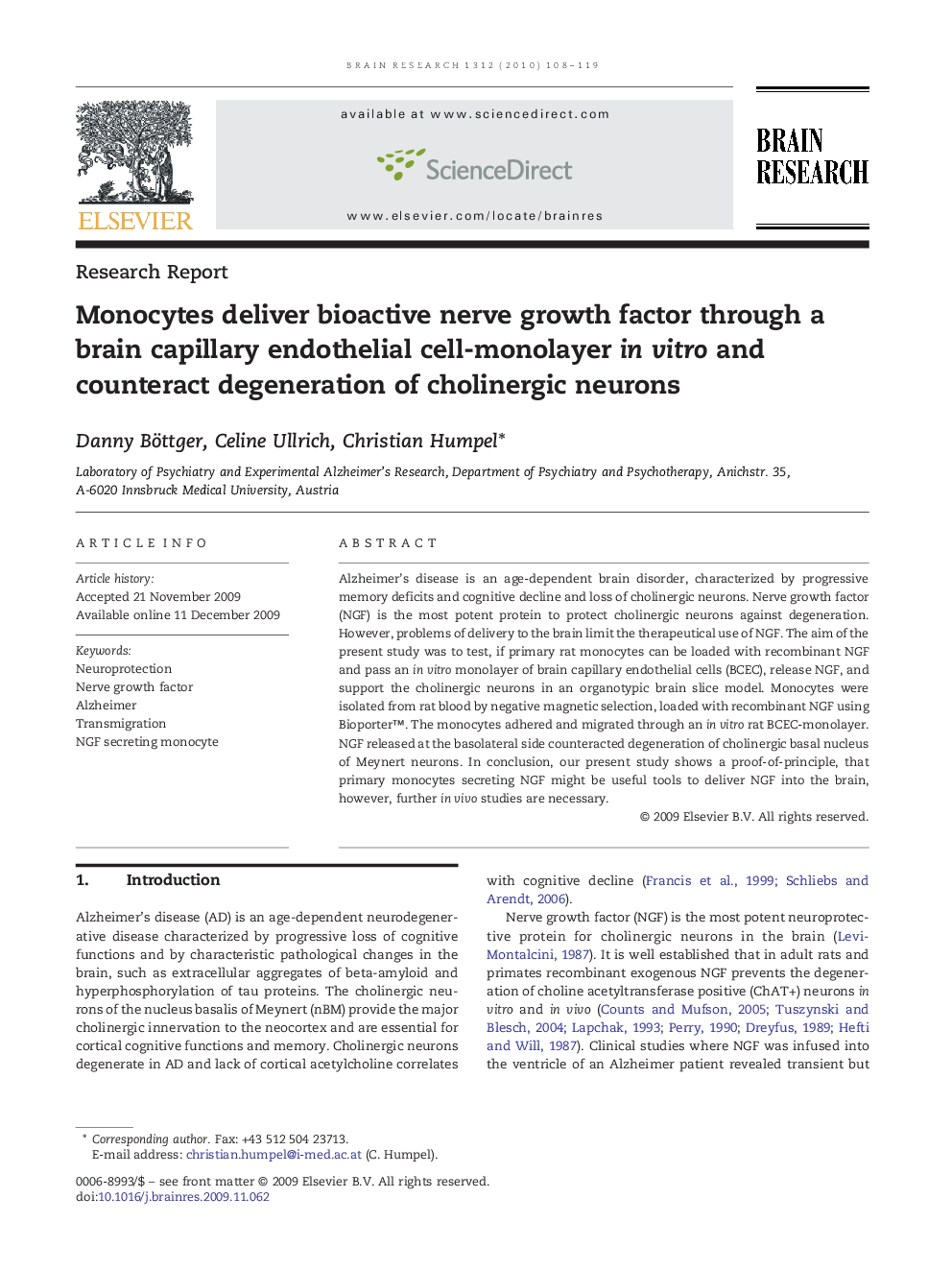| Article ID | Journal | Published Year | Pages | File Type |
|---|---|---|---|---|
| 4327509 | Brain Research | 2010 | 12 Pages |
Alzheimer's disease is an age-dependent brain disorder, characterized by progressive memory deficits and cognitive decline and loss of cholinergic neurons. Nerve growth factor (NGF) is the most potent protein to protect cholinergic neurons against degeneration. However, problems of delivery to the brain limit the therapeutical use of NGF. The aim of the present study was to test, if primary rat monocytes can be loaded with recombinant NGF and pass an in vitro monolayer of brain capillary endothelial cells (BCEC), release NGF, and support the cholinergic neurons in an organotypic brain slice model. Monocytes were isolated from rat blood by negative magnetic selection, loaded with recombinant NGF using Bioporter™. The monocytes adhered and migrated through an in vitro rat BCEC-monolayer. NGF released at the basolateral side counteracted degeneration of cholinergic basal nucleus of Meynert neurons. In conclusion, our present study shows a proof-of-principle, that primary monocytes secreting NGF might be useful tools to deliver NGF into the brain, however, further in vivo studies are necessary.
